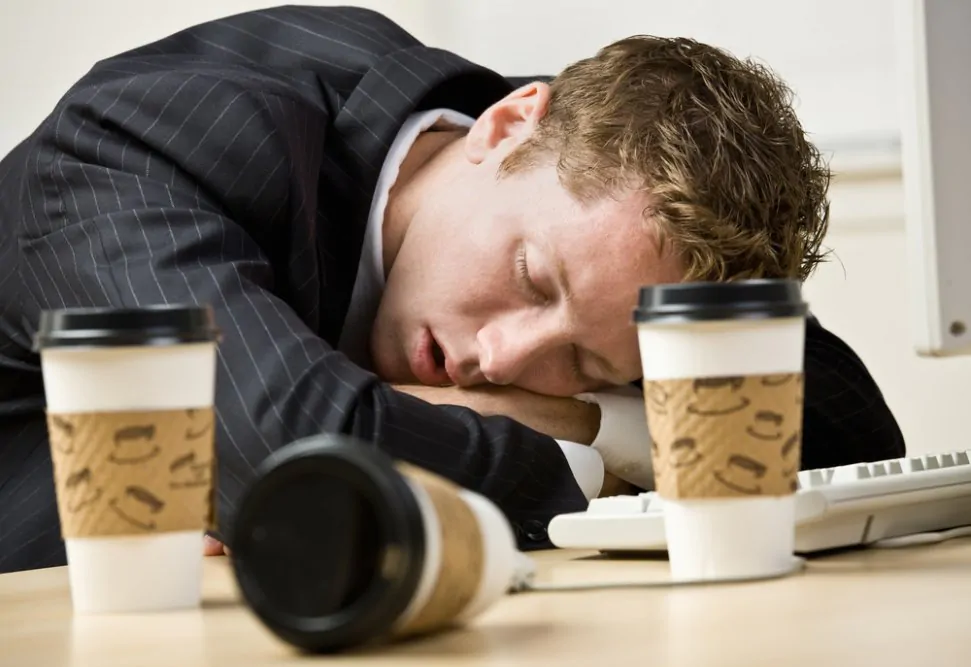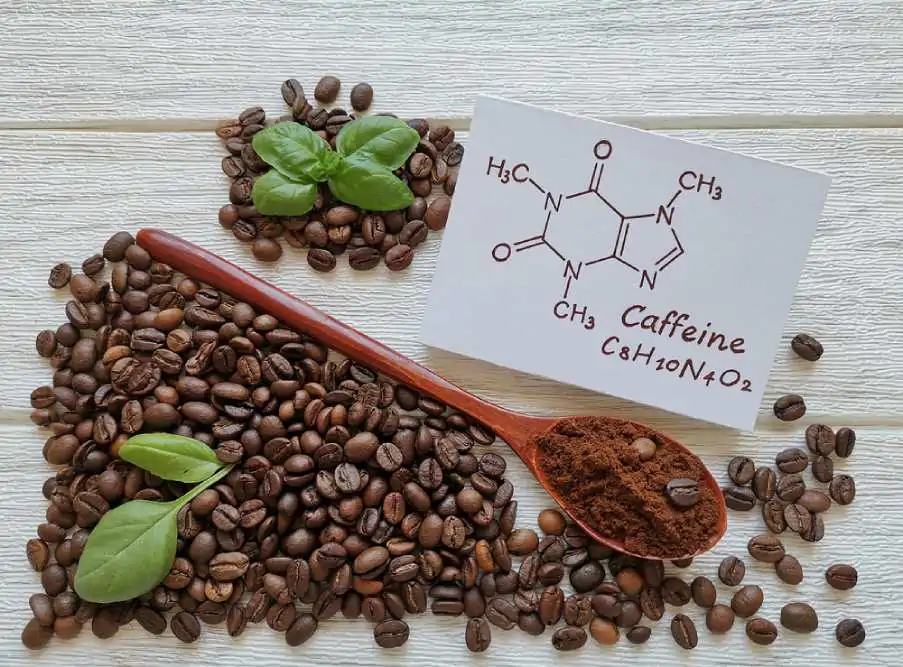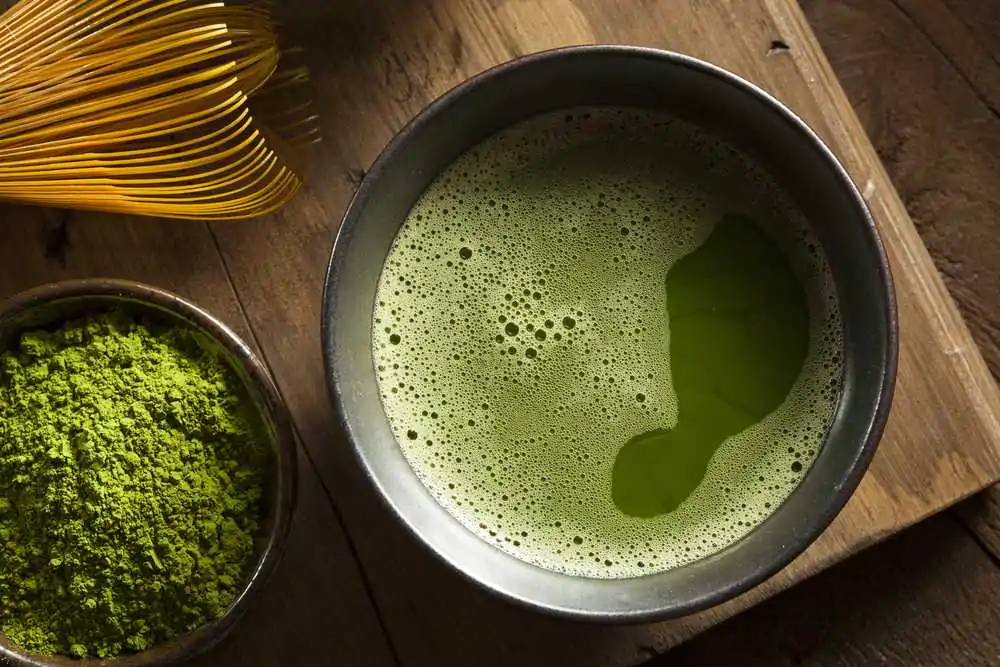Have you drank multiple cups of coffee but feel the same? If you’re wondering, ‘Why does caffeine not affect me?’ you’ve come to the right place.

Coffee is a lifesaver when you’re struggling to wake up in the morning. So, if you’ve finished your fourth cup of coffee and are still yawning, you’re probably asking yourself, Why does caffeine not affect me?
There could be several reasons caffeine isn’t acting as a pick-me-up. If you’re a heavy coffee drinker, the likely culprit is an increased caffeine tolerance or sleep deprivation, but there could also be genetic factors at play. You might also be wondering, does coffee lose caffeine over time?
How Does Caffeine Work?
Before delving into why caffeine affects people differently, it’s important to understand how caffeine works in the first place. Caffeine doesn’t give us energy, at least not the way that food and rest do.
Instead, caffeine stimulates the central nervous system, blocking the adenosine receptors in the brain. These receptors are responsible for that feeling of tiredness we experience toward the end of the day or after a poor night’s rest. We instead feel more alert and refreshed.
Another one of the ways caffeine makes us feel better is by triggering the release of neurotransmitters such as dopamine. This puts us in a good mood and increases focus.
Caffeine also decreases the secretion of melatonin, which is a sleep hormone. This is why people who drink a lot of coffee or drink coffee later in the day may struggle to sleep at night.
When we drink coffee, the caffeine is absorbed in the small intestine, where it can travel to the brain. Some people can feel the effects within 10 minutes, but it may take longer for all the caffeine to be absorbed.
The half-life of caffeine varies per person but is around five to six hours on average. In other words, if you drank a cup of coffee at 5 PM and went to bed at 11 PM, half of the caffeine could still be in your system.
Why Caffeine Affects People Differently
Genetics
Genetics plays a significant role in how you will react to caffeine. Some people get the jitters after one cup, and others can drink multiple caffeinated drinks and feel no difference.
One study found that around 10% of people naturally have a high caffeine tolerance due to genetics. Research also found that those with caffeine sensitivity experience amplified effects due to variance in the ADORA2A gene.
Genetics play a role in how fast the body can metabolize caffeine, too. The CYP1A2 enzyme in the liver is responsible for 95% of the metabolization of caffeine, but there are two forms of it. One form is quicker at processing the caffeine, meaning it will go through your system faster.
The sooner it’s metabolized, the sooner you feel sleepy again. How you react to caffeine also depends on how well adenosine receptors can bind caffeine molecules. If you genetically inherited a high caffeine tolerance, there’s nothing you can do to lower it.
You Built Up Your Tolerance

Continuous exposure to caffeine can help you build up your tolerance. If you’re a heavy coffee drinker, you might have initially felt a buzz from one cup, but now, you need more and more to wake yourself up.
Although this may be frustrating, ingesting more than 400 mg of caffeine in one 24-hour period is not recommended. Even if you consume a lot of caffeine and don’t feel the jitters, you shouldn’t push this limit because it’s possible to overdose on caffeine.
Symptoms can include:
- Headaches
- Irregular or rapid heartbeat
- Nausea
- Chest pain
- Diarrhea
If you think you consumed too much caffeine, consult a medical professional. You might also be interested in our explainer on micro-dosing caffeine.
You’re Not Getting Enough Sleep
Drinking coffee can keep you up at night if you drink it too close to bedtime. As mentioned earlier, caffeine doesn’t actually give us energy; it just masks sleepiness.
If you keep drinking coffee due to a lack of sleep, you’ll soon find yourself trapped in a vicious cycle. The American Academy of Sleep Medicine states that if you get around five hours of sleep per night, caffeine will no longer make you feel more alert after three days. The only way to resolve this is to ditch the caffeine and try to make up your sleep debt.
If you are generally healthy and mostly drink coffee early in the morning or afternoon, it may not disrupt your quality of sleep. Still, if you’re a particularly heavy coffee drinker, one of the reasons you might be experiencing sleep deprivation is actually because of withdrawal symptoms from pausing your coffee consumption at night time.
Caffeine withdrawal symptoms include:
- Headache
- Tremors
- Anxiety
- Irritability
- Fatigue
- Low mood
You Have ADHD
Many people with ADHD find that caffeine does not affect them the same way as others. Some people with ADHD feel they have an increased caffeine tolerance and even experience a feeling of calmness after consuming caffeinated drinks.
However, this is all anecdotal as the research is inconclusive. A report from 2022 suggests that there isn’t a connection between caffeine intake and the severity of ADHD symptoms.
However, other studies reported differently, finding that caffeine helped increase concentration. This is believed to be because ADHD is often treated with stimulants, so coffee can somewhat replicate the effects.
Feeling like caffeine doesn’t affect you or that it makes you calmer doesn’t necessarily mean you have ADHD. If you’re concerned, speak to a healthcare professional.
Benefits Of Caffeine And Coffee
Even if caffeine doesn’t make you feel as alert as you’d like, there are still some benefits. Drinking two to five cups of coffee per day can reduce your risk of developing several ailments, including endometrial and liver cancer. This may not necessarily be due to the caffeine, but the anti-inflammatory compounds and antioxidants in the coffee.
The polyphenols in coffee may be a reason why coffee drinkers are less likely to develop cardiovascular disease. Coffee is linked with a lower heart failure risk, too.
The caffeine itself also has some advantages. Caffeine consumption might reduce the risk of developing Parkinson’s disease later in life.
As mentioned earlier, this stimulant may also be good for your mental health, as a study found consuming a moderate amount of caffeine can boost your mood. It has even been linked to a lower risk of experiencing depression. Learn more in our guide on morning coffee benefits.
Side Effects Of Caffeine And Coffee
While coffee has a lot of benefits, there are potential negative effects to keep in mind. People often enjoy coffee with creamer and sugar. This is fine as an occasional treat, but the American Heart Association advises consuming no more than nine tablespoons per day for men and six tablespoons for women.
As mentioned earlier, coffee can be good for heart health, but you should still drink it in moderation, especially if you already have high blood pressure. One study found that new coffee drinkers experienced a slight increase in blood pressure, but this tapered off with regular consumption. However, another study noted that those who drank at least five cups of caffeinated coffee per day experienced a rise in blood pressure.
Those with a lower caffeine tolerance will note an increased heart rate after drinking coffee. Although research found that moderate caffeine consumption does not increase the risk of arrhythmia, anecdotally, some people sensitive to the stimulating effects of caffeine may feel their heart flutter.
Many people believe that coffee dehydrates you. Research suggests that moderate coffee consumption is not harmful for hydration, but drinking a lot can have a diuretic effect. Regular coffee and decaf coffee can also have a laxative effect.
Finally, drinking coffee and black tea can reduce the amount of iron you absorb from meals. This isn’t due to the caffeine but rather the polyphenols found in these drinks. If you have low iron levels, it’s best to avoid these beverages at meal times.
Alternative Sources Of Caffeine

If you don’t like coffee but still want an energy boost, the following also contain caffeine:
- Energy drinks
- Black tea
- Green tea
- Chocolate
The jitters are not something inherent to coffee. If you have a lower caffeine tolerance, you may still feel uncomfortable after consuming too much caffeine from other sources.
With that said, matcha tea contains a lot of caffeine since it’s green tea in its most potent form. Regular green tea contains 30 to 50 mg of caffeine, but since matcha tea entails drinking ground-up tea leaves, the caffeine content jumps to around 70 mg.
Despite this, many drinkers find it perks them up without leaving them feeling jittery, which may be because it contains L-theanine, an amino acid that promotes feelings of calmness. This effect is believed to be because matcha contains more L-theanine than regular green tea and coffee.
Some coffee lovers also find that adding mushroom mixes to coffee helps them reap the energy-boosting effects of caffeine without getting the jitters. Learn more in our round-up of the best mushroom coffee brands.
Why Does Caffeine Not Affect Me? FAQs
Does Adding Milk Reduce The Caffeine Content?
Picking up a latte in Starbucks instead of Americano or adding milk to brewed coffee will not alter the caffeine content unless you toss some of the coffee out. Milk or creamers simply alter the taste.
Should I Quit Caffeine Cold Turkey?
It’s not advised to quit caffeine outright as you may be dependent on it and experience unpleasant withdrawal symptoms. Instead, slowly cut down on the caffeinated beverages in your diet, including tea, coffee, and energy drinks.
Does Espresso Have The Most Caffeine?
Espresso is a concentrated serving of coffee, but not always the strongest drink. There is usually 63 mg of caffeine per shot, but this can vary based on the coffee beans used. For comparison, there is around 93 mg of caffeine for an eight-ounce serving of brewed coffee.
